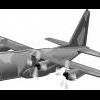The other services stratify everyone, but there are problems with their promotion systems as well. No system is perfect. Ours works.
Feedback is for the ratee. Too many raters do a shitty job giving real feedback. Chickenshits I guess. OPRs and PRFs are for the boards, not for those outside the AF. The OPR isn't really written for the ratee, so it isn't the most appropriate place to put real, useful feedback like "your interpersonal skills suck and people think you are an arrogant, self-serving jackass" or "you will never be an effective leader because people can't stand being around you and they won't follow you anywhere". Ratees are confused by the unwritten but broadly understood words in the push lines and on the reports because their raters and/or senior raters don't want to explain them or the ratees don't care. There are plenty of people who can look at an OPR, PRF or record and give you an idea of how strong it is. The key is teaching those who write performance reports how to describe a strong performer and what to avoid saying with a strong performer (potential, MAJCOM, ADO next, continue to challenge, etc). There are plenty of writing guides, and there is good, accurate advice on this forum.
The promotion boards get it right most of the time. The top 15-20% is sharp, and most of those passed over have the worst records of all those scored. There are a few outliers, there always will be. Boards look at job performance, breadth, depth, stratification, distinction (DG, awards), deployments and ability to lead at next grade. Strats are important, but virtually non-existent in the records of the bottom 50%. There is not much difference between writing "#10/20 Capts" and "Top Tier" in the push line. Raters are better off just explaining the ratees best character traits and performance. Describe what they do really well, in plain language. If you want them promoted, include a school push and good staff job. If you want them to command or be promoted BPZ, you'll need a great strat, a school push, a joint job push and a command push to go along with the demonstrated job performance, depth, breadth, distinction, deployments and ability to lead at the next grade.
Most of the commonly recommended changes to the performance report and promotion board processes have been tried and don't really work. The current one may suck, but it sucks less than all of the others. There are very few truly merit based, perfect promotion systems in our world. Some people will always bitch, even about your version of the "perfect" promotion system.
The one change I would make is splitting the LAF boards into rated and support. I would also adjust promotion quotas to requirements in each AFSC, not chance. But nobody has asked me and I doubt anything will change in the near future. And we are still waiting for CSAF to give guidance on AADs (not required before O-6) and not double tapping PME (no practice bleeding). Lawyers recommended he rewrite the draft guidance, not sure why. Hopefully the guidance will come out soon.











